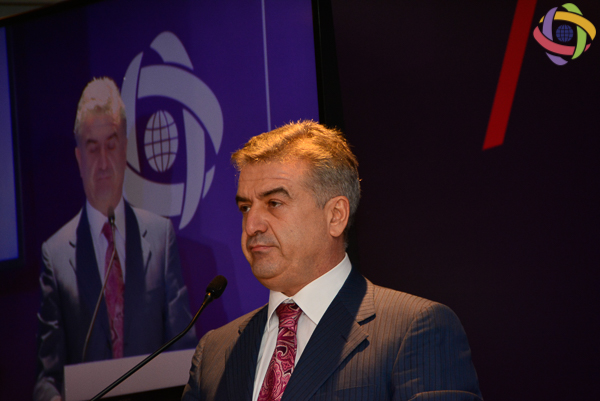A few days ago Armenian Prime Minister Karen Karapetyan made a noteworthy statement. In particular, the Prime Minister agreed that Armenian economy has not benefited from EAEU membership, but also added “What would happen if we were not EAEU member. We do not have that analytics”.
We will not put into doubt the claim about the uselessness of the EAEU. So, let us discuss what prospects would there have been for Armenia in case it had not become EAEU member.
The Alternative
Since 2010, Armenia had been negotiating the Association (Deep and Comprehensive Free Trade Area) Agreement with the European Union. In July 2013, the negotiations were completed and the agreement was ready for preliminary signing.
Read also
However, in September 2013, Armenia dramatically changed the foreign policy course and decided to integrate into the Customs Union and later into the Eurasian Economic Union. Membership in such a union suggests that the member country cannot sign trade and tariff regulation agreements with third parties.
For that purpose, Armenia could no longer sign the Association (Deep and Comprehensive Free Trade Area) Agreement with the EU after taking the EAEU membership path. And, in fact, the consequences of signing the Association Agreement have been estimated (we do have “analytics”, as Mr. Karapetyan puts it).
“The Analytics”
The main part of the Association Agreement is the section referring to trade, which was called Deep and Comprehensive Free Trade Agreement (DCFTA). It envisaged mutual cancellation of customs duties for all types of goods and services between Armenia and the EU, as well as simplification of procedures.
According to a research by world famous Dutch Ecorys organization, Armenia would have additional 2.3% GDP growth as a result of association with the EU, and the budget revenues would increase by additional 146 million USD.
According to the same research, exports from Armenia would also increase. And the cancellation of customs duties for European goods imported to Armenia would result in 1.2% compensation of price increase for consumer goods.
The report findings claimed that the strengthening of market competition inside Armenia would bring to additional 2.7% salary increase, and the number of highly qualified jobs would increase by 7%. Poverty, both extreme and general, would suffer a significant decline.
Even Further
But Armenia’ benefits from association with Europe would not be limited to the aforementioned predictions. In August 2013, the Armenian Government prepared a document according to which the EU was supposed to give a 4 billion, 865 million Euro grant to the Republic of Armenia. Most of it had already been discussed with EU officials and it was due to be submitted to European Union donors after Armenia would pre-sign the Association Agreement.
556 million Euros from that grant was envisaged to be received during the years 2014-2015, and about 4.3 billion – during 2016-2025. That money was intended to rebuild roads, improve water sources, irrigation and drainage systems, construct dams, repair schools.
Moreover, it should be noted that the development and growth of the Armenian economy thanks to these grants was not included in the research by Ecorys.
This means that the additional growth of Armenian economy due to refusing EAEU integration and signing an Association Agreement with the EU would not be limited to the aforementioned figures predicted by Ecorys but would constitute a considerably larger figure.
Daniel Ioannisyan,
“Union of Informed Citizens” NGO

























































